INSIDE ISSUE 19.29 | July 17, 2020
 BIG STORY: Policy questions loom as coronavirus vaccine develops
BIG STORY: Policy questions loom as coronavirus vaccine develops
NEWS BRIEFS: ‘Charleston is in trouble’ on flooding, report says
COMMENTARY, Brack: Don’t use pandemic, schools for Foghorn-Leghorning
SPOTLIGHT: Francis Marion University
FEEDBACK: On wearing masks and real news
MYSTERY PHOTO: Marble statue in historic place
S.C. ENCYCLOPEDIA: Pisé de terre
Policy questions loom as coronavirus vaccine develops

By Lindsay Street, Statehouse correspondent | Health and policy experts see developing a coronavirus vaccine as the best medical solution to kill off the disease that’s killed more than 1,000 in South Carolina and hundreds of thousands across the world. But while it may be months or even years away, now is the time to start working on how to administer it, they say.
As of Thursday, the coronavirus has infected 63,880 and killed 1,053 in the state. It is projected to kill more than 4,500 by Nov. 1.
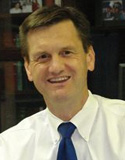
“(A vaccine) really is the thing we need before we’re ever going to get back to normal again,” said Beaufort Republican Sen. Tom Davis, a member of both the Senate Medical Affairs and the Re-Open South Carolina Select committees. “It’s one thing to have a vaccine and it’s another to distribute it to have the economic and health benefits that we want and we ought to be preparing for it now.”
Prakash Nagarkatti, an immunologist and University of South Carolina vice president of research, called the question of getting a high vaccination rate in the state “the million dollar question.”
“If we can’t sell the wear-a-mask message, then we can’t sell the message of take-the-vaccine,” Nagarkatti said. “If you really want to open the economy and not have to think twice about the virus moving forward, then we need to wear masks and social distance and wash hands, but also once the vaccine becomes available and it’s safe, then people need to get vaccinated.”
Vaccine development under way
As of Friday, there are 197 vaccines currently in some phase of development. Under the federal government’s Operation Warp Speed, up to $10 billion in federal funding has been made available to eight vaccine developers. Making headlines this week: Moderna’s vaccine will start its final testing phase with a 30,000-person study July 27 to prove the efficacy of its shots.
“Developing the vaccine is not going to be difficult against this wild infection but making sure it works and making sure it does not trigger a bad reaction or toxic side effects, that safety is going to be a big concern,” Nagarkatti said.
In June, a USA Today panel that includes Nagarkatti predicted that vaccine development is about one-third of the way toward completion.
Nagarkatti said researchers will now begin to answer the questions of safety, and dosing and what level of infection and sickness an inoculated person is likely to get. Researchers also must figure out how long the antigens remain in a body after vaccination to determine if the vaccine must be given annually or only once.
Meanwhile, Nephron Pharmaceuticals in West Columbia announced this week it would prepare for a potential coronavirus vaccine distribution in its $215 million expansion plan that would create an additional 380 jobs.
Researchers have estimated at least 70 percent of the population needs to develop immunity to the virus for its eradication. That’s 3.5 million people in South Carolina, where only 1.5 million were inoculated during the 2019-2020 flu season.
Getting the message out
Nagarkatti said he fears up to 50 percent of the population may refuse vaccination — creating a roadblock not seen in the 20th century eradication of smallpox. Medical University of South Carolina microbiology professor Michael Schmidt said polio and smallpox — two victories of vaccination efforts — didn’t have what the coronavirus has: social media and brewing distrust.
Much of that distrust may come down to personal beliefs.
“It seems like everything in our society now automatically becomes politicized now even things you think couldn’t be are and that’s the nature of our times,” Davis said. “I wouldn’t be surprised if that happens with vaccinations as well.”
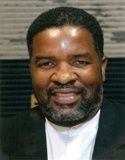

Columbia Republican Rep. Kirkman Finlay said opponents of vaccinations cut “across some weird political lines.”
“If you or your child or grandmother dying doesn’t motivate you, I don’t think anything would,” he said.
Charleston Democratic Rep. Wendell Gilliard said he hasn’t seen any hesitation among his constituents.
“As long as the FDA[U.S. Food and Drug Administration] approves it and it’s proven to be effective and safe, they’d stand in line for it for their children and themselves rather than be put on the ventilator,” he said. “When you look at the people who have contracted this every day, everybody will be kicking the doors down to be vaccinated.”
Public health policy experts said now is the time for health officials in the state to begin crafting public messages to combat misinformation.
“We really need to think strategically in how to message this properly to the general public,” Schmidt said.
Infrastructure questioned
Logistics should be worked out at the same time as vaccine development, some say.
“We’ve seen the challenges with simply lining up for voting,” Schmidt said. “One of the discussions that our governor and state legislature needs to be planning for: if we get a vaccine how are we going to distribute it?”
The state, like many other states, was behind the curve on testing and still lags behind where health experts say it could mitigate or suppress the virus. Some have drawn parallels between the inability to ramp up testing and the problems to come with vaccine distribution.
“It’s incumbent upon government to put into place the infrastructure whereby if someone wants to get vaccinated they can,” Davis said. “(Testing) exposed a structural problem here in South Carolina. We had difficulty in ramping up tests because we didn’t have the personnel and the various pieces.”
Part of that streamlining could come from expanding the pool of those qualified to administer vaccines. Davis has worked in recent years in expanding the list of health services under nurse practitioners and other medical professionals.
“There’s no reason why more couldn’t be authorized to administer the vaccine. That just goes into the logistics of it all. How do you go about making the massive number of people available to the vaccine,” he said.
Schmidt posed a similar question.
“Should we deputize dentists to administer vaccines in addition to pharmacists, nurses and others?”
There is also the question of what kind of vaccine will become available and how it must be stored. If it must be refrigerated, then that could pose an additional logistical woe, Schmidt said.
A question of mandating the vaccine
There is a question over whether South Carolina could or should attempt to mandate vaccination for the coronavirus.
Finlay said last week in a discussion about getting people back to work: “That’s going to be the next question, what do we do about people who refuse to vaccinate?”
S.C. Department of Health and Environmental Control’s Laura Renwick said a vaccine mandate would likely need a gubernatorial declaration. The governor’s office did not respond to a request to comment on this story.
It could also come down to the legislature.
“You got to go about a mass inoculation. What role does the state play? I don’t know enough about that yet,” Davis said. “It’s going to be something we have to engage in just like we’ve had to engage in the discussion of at what point does our liberty need to be constrained to prevent harm to others … Ultimately, we will be called upon to make some policy in this regard.”
- Have a comment? Send to: feedback@statehousereport.com
‘Charleston is in trouble’ on flooding, report says

By Lindsay Street, Statehouse correspondent | An annual federal flooding report found Charleston’s high tide flooding is increasing at an alarming rate.
“The report is very clear: Charleston is in trouble,” Coastal Conservation League’s Betsy La Force told Statehouse Report. “If we look at the data and continue to ignore it the issue will only get worse. It’s scientific. It’s not political. It proves to the public and political leaders that climate change impacts are happening now … We have to be realistic and plan accordingly.”
The National Oceanic and Atmospheric Administration report included data from Charleston and Myrtle Beach. Charleston was mentioned in graphs and highlighted 21 times in the report.
Charleston saw 13 high-tide flooding events in 2019 but is projected to see only four to seven flooding events this year. Myrtle Beach’s Springmaid Pier had 11 flooding events in 2019 but is projected to see only two to six this year. Charleston could experience up to 90 high-tide flooding events by 2050, the report said. Myrtle Beach could see up to 75.
The increase in high-tide flooding along the Atlantic and Gulf coasts since 2000 has been “extraordinary,” according to the report, which found that the frequency of flooding in some cities growing five-fold during that time.
- Read the report here; See page 15 for Charleston’s and Myrtle Beach’s data.
In other news:
![]() Lawsuit challenges Heritage Act. A new lawsuit that includes Jennifer Pinckney, the widow of the late Rev. and S.C. Sen.p. Clementa Pinckney, alleges South Carolina’s Heritage Act is unconstitutional. The act protects war memorials, including those to the Confederacy, viewed by many as racist. Pinckney voted against the bill in 2000. He was slain with eight other worshippers in a 2015 racist attack on Emanuel AME Church in Charleston. The lawsuit claims the act violates the constitution by placing limits on the ability to amend or repeal the law and by disregarding home rule for local government control over local matters. Read here.
Lawsuit challenges Heritage Act. A new lawsuit that includes Jennifer Pinckney, the widow of the late Rev. and S.C. Sen.p. Clementa Pinckney, alleges South Carolina’s Heritage Act is unconstitutional. The act protects war memorials, including those to the Confederacy, viewed by many as racist. Pinckney voted against the bill in 2000. He was slain with eight other worshippers in a 2015 racist attack on Emanuel AME Church in Charleston. The lawsuit claims the act violates the constitution by placing limits on the ability to amend or repeal the law and by disregarding home rule for local government control over local matters. Read here.
McMaster sets up fight with push for in-person school. Gov. Henry McMaster announced Wednesday he is pushing for schools to reopen after Labor Day, fully in-person, while Education Superintendent Molly Spearman pushed back, not attending the announcement and saying that safety should be first. Districts across the state are scrambling to adjust reopening plans in light of the mixed guidance. Read more. Also: See Andy Brack’s commentary today below.
Charleston bus project holds promise of S.C. transportation changes. Lowcountry Rapid Transit is a bus system six years in the making between Summerville and downtown Charleston. It is projected to handle 6,784 passenger trips per day. Beyond altering the way traffic flows in the Lowcountry, others expect “the state’s first real mass transit project” to have far reaching impacts on the rest of the state. Read here.
South Carolina to share license data for citizenship efforts. At the direction of Gov. Henry McMaster, South Carolina, together with Iowa and South Dakota, have joined Nebraska in agreeing to share state driver’s license information with the Census Bureau. Read more.
Unemployment numbers show S.C. hasn’t recovered yet. Tens of thousands of new applicants continue to sign up for unemployment benefits in South Carolina, suggesting the economy won’t be rebounding any time soon. Read more.
S.C. Supreme Court temporarily bans no-knock warrants. S.C. Chief Justice Donald W. Beatty said last week that circuit and summary judges cannot sign off on “no-knock” search warrants until they receive further instruction from the state’s highest court on how to issue the warrants. Read more.
Civil forfeiture reform draws national attention. The Institute for Justice, a national nonprofit law firm, has stepped into a state Supreme Court case that could change civil forfeiture in the state. Read more.
- Have a comment? Send to: feedback@statehousereport.com
Don’t use pandemic, schools for Foghorn-Leghorning

By Andy Brack, editor and publisher | There’s been a lot of huffing, puffing and bantam-roostering of late by Gov. Henry McMaster and Republican legislative leaders about when schools should reopen.
 Turn the cluck off, folks. We need to do what’s right and safe, not anything related to the politics of the moment.
Turn the cluck off, folks. We need to do what’s right and safe, not anything related to the politics of the moment.
There’s been lots of pressure by McMaster and a coterie of state Republican legislative leaders, all mimicking tirades from President Trump in Washington, to get schools restarted as soon as possible. The reasoning is simple — if parents can’t work because they have to continue keeping their kids at home as a pandemic roils the state, an economic recovery is further off.
But this reasoning puts economics over safety. In a state that never was truly closed for business, we can see what that’s done so far — nothing. More than 1,000 people have died in South Carolina, one of the nation’s hot spots for coronavirus. New cases are surging. Hospitals are panicking. And as a people, we’re just not doing enough to dampen outbreaks.
So putting kids in schools at this vulnerable point is, how do you say it? Inadvisable, according to public health experts? Way too soon, according to hyper-worried teachers who want safe classrooms? Or just plain idiotic?
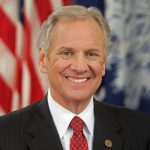
McMaster announced in recent days it was vital for schools to reopen with full-time, in-person classes after Labor Day. Yes, parents can decide whether to keep kids at home for virtual learning, but he strongly advised schools to reopen.
“The higher percentages [of coronavirus] that we see now, those are just facts we have to deal with,” said the governor. “But we can’t stop everything. We can’t stop progress in education and people working. We can’t shut down forever.”
McMaster, unhappy with results of online spring learning but backed it as a continuing option, was careful to not say he was issuing a mandate for full-time school reopening, thereby avoiding what some said could be a constitutional crisis.
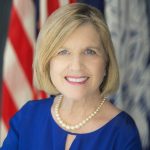
Ordering schools to open likely would conflict with the powers of state Superintendent of Education Molly Spearman, notably absent from McMaster’s Wednesday press conference. Like McMaster, she is a constitutional officer with constitutional duties. She has pushed back saying she supports reopening schools five days a week, but “as safely and soon as possible.” She says reopenings should be left to each of the state’s 79 school districts.
“We cannot … turn a blind eye to the health and safety of our students and staff when the spread of the virus in some of our communities is among the highest in the world,” Spearman said in a statement. “School leaders, in consultation with public health experts, are best positioned to determine how in-person operations should be carried out to fit the needs of their local communities. I remain committed to supporting them in this endeavor and will only approve those [reopening] plans that offer high-quality options and keep safety as their top priority.”
Derek Black, a constitutional law professor at the University of South Carolina, says the tiff between McMaster and Spearman is a battle the superintendent likely would win if he tried to mandate a return to schools.
“There’s no crisis yet,” he said. “The state superintendent is a constitutional officer and, as a constitutional officer, she stands as the governor’s equal on any matters of education — as his superior, in many respects. That may be distressing for the governor’s office, but it’s been part of the constitutional design of this state since 1868 and remains there to this day.”
Even more curious is how legislative leaders like House Speaker Jay Lucas and Senate President Harvey Peeler were at McMaster’s side during the press conference — especially when you consider legislators actually gave Spearman more power and flexibility earlier this year in emergency pandemic legislation.
In a bill signed into law by McMaster on May 18, lawmakers authorized the superintendent to exercise emergency powers she deemed necessary and appropriate during the pandemic to “provide maximum programmatic and financial flexibility” for schools.
Hmmm. Sounds like Spearman can err on the side of health and safety for South Carolina’s students, huh?
So all of you Foghorns: Let’s focus on masks and curbing the virus, not stirring it up.
- Andy Brack is editor and publisher of Statehouse Report. His column also is published in the Charleston City Paper, Florence Morning News, Greenwood Index Journal, The (Seneca) Journal, Camden Chronicle Independent and Hartsville Messenger. Have a comment? Send to: feedback@statehousereport.com.
Francis Marion University
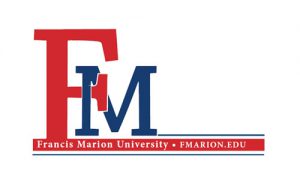 The public spiritedness of our underwriters allows us to bring Statehouse Report to you at no cost. We’re happy this week to shine our spotlight on Francis Marion University, a public university located in Florence, S.C. It was founded in 1970 with a mission to provide the people of the Pee Dee, and of South Carolina, with high quality, yet accessible, university education. FMU has stayed true to that mission for nearly 50 years. In any given year, more than 95 percent of the university’s students are South Carolinians, and FMU is, by most measures, the most affordable college in the state.
The public spiritedness of our underwriters allows us to bring Statehouse Report to you at no cost. We’re happy this week to shine our spotlight on Francis Marion University, a public university located in Florence, S.C. It was founded in 1970 with a mission to provide the people of the Pee Dee, and of South Carolina, with high quality, yet accessible, university education. FMU has stayed true to that mission for nearly 50 years. In any given year, more than 95 percent of the university’s students are South Carolinians, and FMU is, by most measures, the most affordable college in the state.
Francis Marion University is, of course, named for Revolutionary War hero, General Francis Marion, who was nicknamed “The Swamp Fox” for his uncanny ability to use terrain, local knowledge and just plain old South Carolina common sense to outfox the British. Today, FMU prides itself on providing a strong liberal arts education for its 4,000 students, while at the same preparing them for careers in a broad range of fields.
The University offers professional schools in health care, education and business, as well as graduate programs in business, education and psychology. FMU’s new School of Health Sciences is adding new programs, designed to help deliver critical medical services to the community, on an almost annual basis, so great is the demand by students and the need in our region and state. Recent undergraduate additions to the University as a whole include Health Care Management and Industrial Engineering. The latter, just begun in 2014, is already one of the fastest-growing majors on campus.
The campus is situated on over 400 wooded acres of beautiful foliage and landscaping. A significant campus presence in historic downtown Florence is also developing. FMU’s Performing Arts Center is located there along with the Carter Center for Health Sciences, and the FMU Recording Studio, The University recently acquired more downtown property near the Carter Center, which will help support future academic expansions.
FMU has managed to grow while at the same time providing South Carolinians with, as noted, an affordable university education. FMU’s total net cost — tuition plus room, board and other fees, less scholarships and grants awarded — is South Carolina’s lowest, and by a considerable margin, according to calculations performed by a third party, CollegeFactual.com. FMU has managed this unusual balance of quality and affordability by avoiding capital debt, minding administrative costs carefully, and developing a culture of giving among its many friends and supporters in the Pee Dee and beyond.
- To learn more about Francis Marion, visit online at fmarion.edu.
Wear masks to get virus under control
To the editor:
![]() Robert Redfield, director of the Center for Disease Control, said that if the majority of Americans would wear masks for one to two months, we could get this coronavirus under control. Two conservative states, Alabama and Montana, have recently mandated masks be worn in public. The medical community has been pleading for South Carolina to mandate masks like half the states have already done.
Robert Redfield, director of the Center for Disease Control, said that if the majority of Americans would wear masks for one to two months, we could get this coronavirus under control. Two conservative states, Alabama and Montana, have recently mandated masks be worn in public. The medical community has been pleading for South Carolina to mandate masks like half the states have already done.
Hospitals around South Carolina are running out of ICU beds. Contact tracing is no longer effective because of the large number of new infections daily. Two states have had to bring in refrigerated trailers for the dead because the morgues are all full.
Our governor says a mask mandate “is unenforceable.” But most caring citizens want to abide by the law to protect their families and promote public safety. That’s why seat belt compliance increased dramatically in our state once the Legislature wisely mandated that drivers buckle up. Like seat belts, mask-wearing will save lives.
If we all wore masks for the next two months, we would create a much safer environment for our school children, our teachers, our cafeteria workers, our bus drivers and their families as we try to safely reopen schools. We might even have an opportunity to attend a college football game in September. Our governor should follow Alabama’s Republican governor and mandate masks. Even a temporary 60-day mandate would help control the COVID-19 spread. It’s not a lot to ask given our current public health crisis.
— Tom J. Ervin, Greenville, S.C.
Enjoying the real news
To the editor:
Thank you for your real news. I do not read it enough. Keep it coming!
— John Hart, Columbia, S.C.
What do you think?
We love hearing from our readers and encourage you to share your opinions. But you’ve got to provide us with contact information so we can verify your letters. Letters to the editor are published weekly. We reserve the right to edit for length and clarity. Comments are limited to 250 words or less. Please include your name and contact information.
-
- Send your letters or comments to: feedback@statehousereport.com
Marble statue in historic place
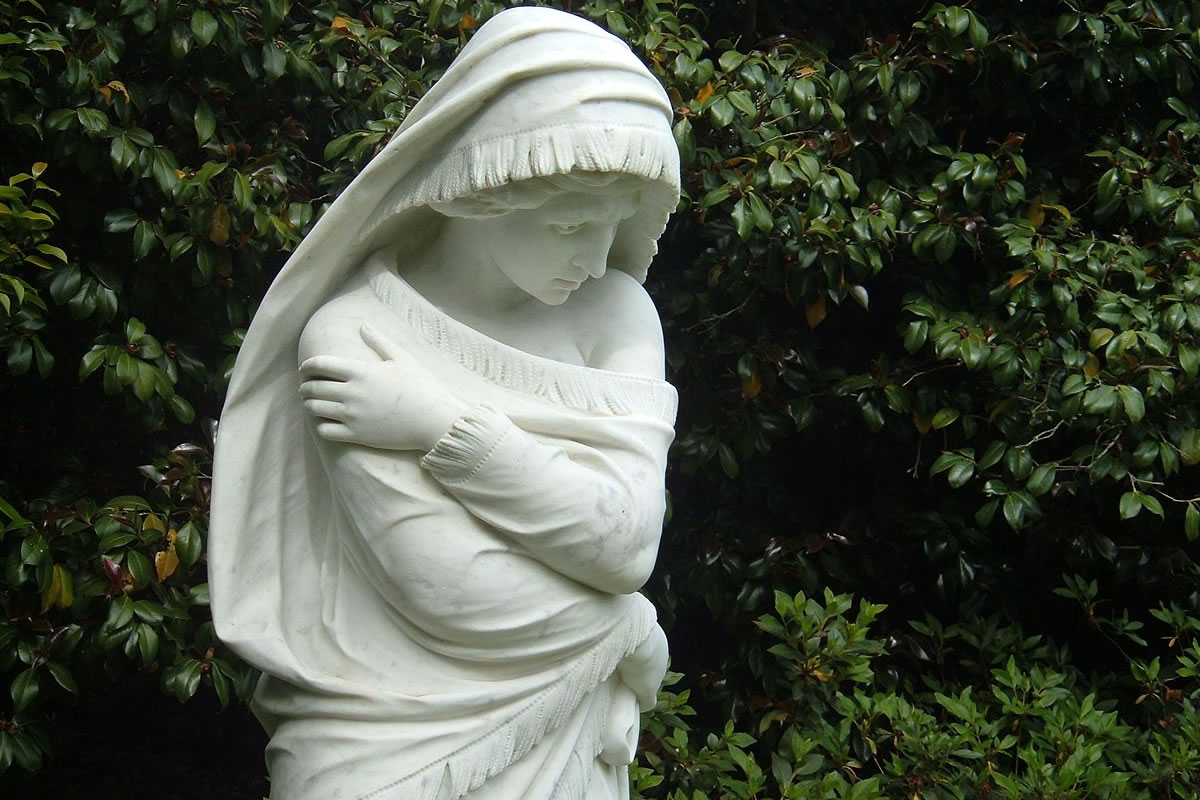
Here’s a statue that can be found in a historic South Carolina location. Send your best guess of what it is as well as something about it. Send to feedback@statehousereport.com. And don’t forget to include your name and the town in which you live.
Our previous Mystery Photo
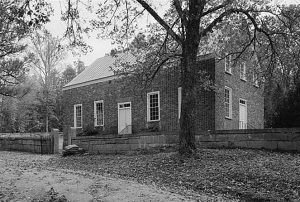 Our July 10, “Old church,” shows the Old Brick Church, also known as the Ebenezer Associate Reformed Presbyterian Church, in Jenkinsville in Fairfield County.
Our July 10, “Old church,” shows the Old Brick Church, also known as the Ebenezer Associate Reformed Presbyterian Church, in Jenkinsville in Fairfield County.
Congratulations to those who identified the church, first built in 1788: Jacie Godfrey of Florence; George Graf of Palmyra, Va.; Charlie Davis of Aiken; Steve Willis of Lancaster; Bill Segars of Hartsville; Kevin Mertens of Greenville; Henry Eldridge of Tega Cay; Deborah Adams of Chesterfield; and Frank Bouknight of Summerville.
Graf shared: “This church was erected by the people of the Little River section of the county in 1788 from bricks molded by the members. They also cut the timber to provide the woodwork. It is small and rectangular, reflecting the sturdy, proud spirit of the Scotch Irish whose love for their religion was always uppermost. The interior is classic in simplicity with long straight-back wooden pews, a slave gallery and an old fashioned pulpit. A written apology from a Union soldier was inscribed on the wall of the sanctuary: ‘To the citizens of this county — Please excuse us for defacing your house of worship. It was absolutely necessary to effect a crossing over the creek. Signed, A Yankee.;”
Davis said the church, on the National Register of Historic Places, “is one of the few 18th-century churches surviving in the South Carolina midlands.” Willis grinned as he said, “This was a ‘gimme’ for us Almost Real Presbyterians!”
Segars added, “This meeting house stands today as one of the oldest Desenter, non-Anglican, buildings in its original state in existence in South Carolina. Regular services were held here until 1920. Since that time only regular annual commemorative services are held here. The Associate Reformed Presbyterian (ARP) Synod of Carolina was established here on May 9, 1803.”
- Send us a mystery: If you have a photo that you believe will stump readers, send it along (but make sure to tell us what it is because it may stump us too!) Send to: feedback@statehousereport.com and mark it as a photo submission. Thanks.
Pisé de terre
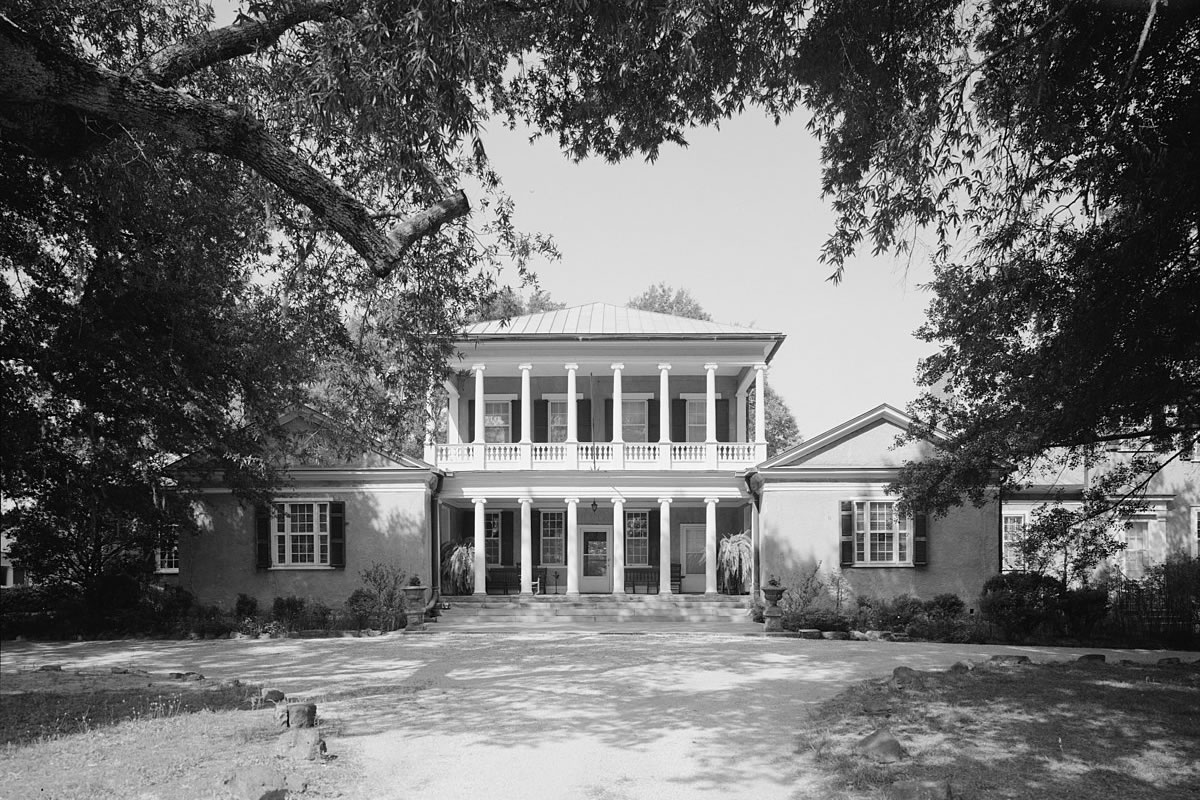
Pisé de terre, or “rammed earth,” is an ancient form of building construction. Clay is the basic material in rammed earth buildings. After a foundation of brick or stone is laid, clay is poured into wooden molds and then tamped until solid. Additional layers are added until the walls reach the desired height, and the finished walls are coated with stucco. In the mid–nineteenth century Dr. William W. Anderson, a Maryland native who settled in Stateburg in 1810, used it to create two of South Carolina’s most distinctive works of architecture: the Borough House and the Church of the Holy Cross. He was influenced by S. W. Johnson, who introduced methods of rammed earth construction to America through his book Rural Economy (1806). In 1821 Anderson used the technique to rebuild the wings of the Borough House, the main building at his Hill Crest Plantation, and several outbuildings. In 1850 Anderson persuaded the Episcopal congregation of Stateburg to use pisé de terre in constructing the Church of the Holy Cross, a Gothic-revival structure designed by the Charleston architect Edward C. Jones. The Borough House and its outbuildings constitute the largest complex of pisé de terre buildings in the United States. The U.S. Department of the Interior designated the Church of the Holy Cross and the Borough House as National Historic Landmarks in 1973 and 1978, respectively.
— From an entry by Daniel J. Vivian. This entry has not been updated since 2016. To read more about this or 2,000 other entries about South Carolina, check out The South Carolina Encyclopedia, published in 2006 by USC Press. (Information used by permission.)
ABOUT STATEHOUSE REPORT
Statehouse Report, founded in 2001 as a weekly legislative forecast that informs readers about what is going to happen in South Carolina politics and policy, is provided to you at no charge every Friday.
Meet our team
- Editor and publisher: Andy Brack, 843.670.3996
- Statehouse correspondent: Lindsay Street
Donate today
We’re proud to offer Statehouse Report for free. For more than a dozen years, we’ve been the go-to place for insightful independent policy and political news and views in the Palmetto State. And we love it as much as you do.
But now, we can use your help. If you’ve been thinking of contributing to Statehouse Report over the years, now would be a great time to contribute as we deal with the crisis. In advance, thank you.
Buy the book
Now you can get a copy of editor and publisher Andy Brack’s We Can Do Better, South Carolina! ($14.99) as a paperback or as a Kindle book ($7.99). . The book of essays offers incisive commentaries by editor and publisher Andy Brack on the American South, the common good, vexing problems for the Palmetto State and interesting South Carolina leaders.
More
- Mailing address: Send inquiries by mail to: 1316 Rutledge Ave., Charleston, SC 29403
- Subscriptions are free: Click to subscribe.
- We hope you’ll keep receiving the great news and information from Statehouse Report, but if you need to unsubscribe, go to the bottom of the weekly email issue and follow the instructions.Read our sister publications: Charleston City Paper (every Wednesday) | Charleston Currents (every Monday).
- © 2020, Statehouse Report, a publication of City Paper Publishing, LLC. All rights reserved.

